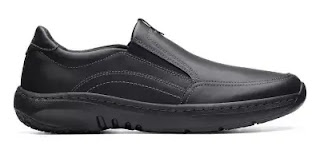Being poor is expensive
Recently I had a choice to either buy decent yet cheap shoes that might last a couple of years or excellent hence expensive shoes that promises to last many years.

I was wondering how to approach this dilemma: quality vs cost trade-off. Would it make sense to save money now but keep replacing it often which would cost the same as buying a expensive ones that last the entire duration.
This is when I recalled a quote by Sir Terry Pratchett in his 1993 novel "Men at Arms".
The reason that the rich were so rich, Vimes reasoned, was because they managed to spend less money.
Take boots, for example. He earned thirty-eight dollars a month plus allowances. A really good pair of leather boots cost fifty dollars. But an affordable pair of boots, which were sort of OK for a season or two and then leaked like hell when the cardboard gave out, cost about ten dollars. Those were the kind of boots Vimes always bought, and wore until the soles were so thin that he could tell where he was in Ankh-Morpork on a foggy night by the feel of the cobbles.
But the thing was that good boots lasted for years and years. A man who could afford fifty dollars had a pair of boots that'd still be keeping his feet dry in ten years' time, while the poor man who could only afford cheap boots would have spent a hundred dollars on boots in the same time and would still have wet feet.
This was the Captain Samuel Vimes 'Boots' theory of socioeconomic unfairness.
In addition to making economic sense, I considered the carbon footprint of our small day-to-day choices apart from not wanting to add to the global trash.

I was wondering how to approach this dilemma: quality vs cost trade-off. Would it make sense to save money now but keep replacing it often which would cost the same as buying a expensive ones that last the entire duration.
This is when I recalled a quote by Sir Terry Pratchett in his 1993 novel "Men at Arms".
Take boots, for example. He earned thirty-eight dollars a month plus allowances. A really good pair of leather boots cost fifty dollars. But an affordable pair of boots, which were sort of OK for a season or two and then leaked like hell when the cardboard gave out, cost about ten dollars. Those were the kind of boots Vimes always bought, and wore until the soles were so thin that he could tell where he was in Ankh-Morpork on a foggy night by the feel of the cobbles.
But the thing was that good boots lasted for years and years. A man who could afford fifty dollars had a pair of boots that'd still be keeping his feet dry in ten years' time, while the poor man who could only afford cheap boots would have spent a hundred dollars on boots in the same time and would still have wet feet.
This was the Captain Samuel Vimes 'Boots' theory of socioeconomic unfairness.
In addition to making economic sense, I considered the carbon footprint of our small day-to-day choices apart from not wanting to add to the global trash.
So, I decided to buy the good shoes that hopefully would last a lot longer.
Comments
Post a Comment